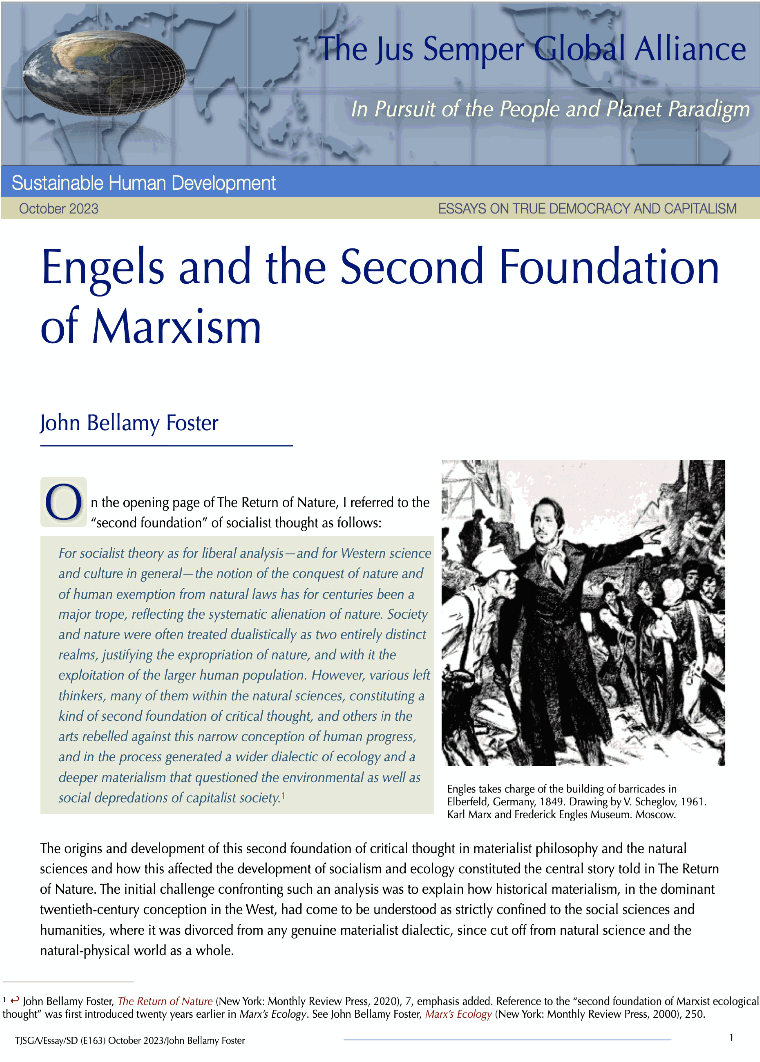To be sure, the classical Marxism of Karl Marx and Engels in the mid-nineteenth century had its origin in the critique of social science. As Engels wrote, “classical political economy” was “the social science of the bourgeoisie” and, as such, the enemy of socialism3 Marx’s critique of classical political economy was aimed at uncovering the “hidden abode” of class-based exploitation and expropriation on which the capitalist mode of production was based. It was this critique, therefore, that constituted the initial foundation of Marxism. But from the first, the materialist conception of history in critical social science was inextricably tied to the materialist conception of nature in natural science. No coherent critique of political economy was possible without exploring the actual biophysical conditions of production associated with what Marx called the “universal metabolism of nature.” Human beings themselves were seen by Marx as corporeal beings, and thus objective beings, with their objects outside of themselves. There was, then, in the end, only a “single science” looked at “from two sides,” those of natural history and human history. It was necessary, therefore, to go beyond philosophy and social science to engage in the critique of bourgeois natural science as well. Indeed, as a theoretical method, the philosophy of praxis could not be confined to the realm of social sciences and humanities, that is, it could not be divorced from natural science, without undermining its overall critique. The fact that natural science and social science, nature and society, are bound inextricably together in any attempt to confront the current mode of production and its consequences is dramatically demonstrated to us today by the current Anthropocene Epoch of geological history, in which capitalism is generating an “anthropogenic rift” in the biogeochemical cycles of the Earth System, endangering humanity along with innumerable other species. In these circumstances, the role of Marxian ecology in understanding our current environmental predicament is of crucial importance. It is here that the second foundation of Marxian theory within materialist philosophy and natural science proves to be indispensable to the development of a revolutionary praxis.
For a full read of this brief, click here or on the picture to download the pdf file.
|

- © The Jus Semper Global Alliance
| Home |  | Resources |  | Economic Data |  | Engels and the Second Foundation of Marxism |


